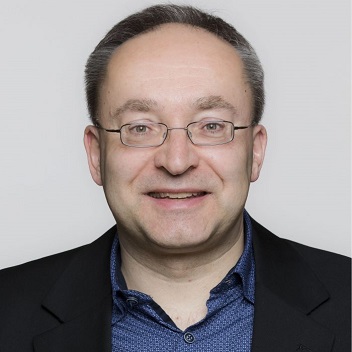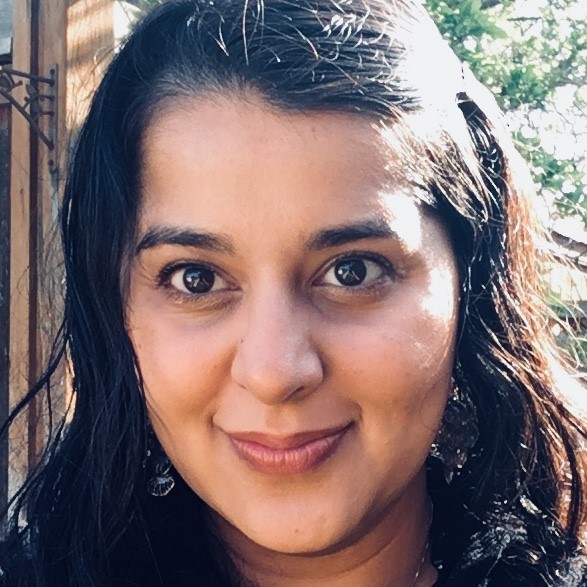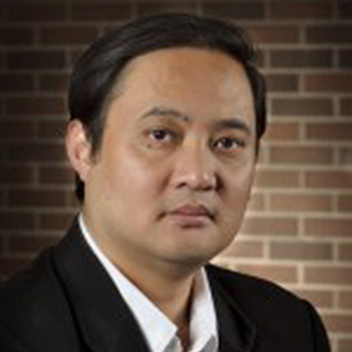
In 2021, the inaugural cohort of Provostial Fellows began a series of year-long projects that would take meaningful action on the United Nations Sustainable Development Goals (SDGs).
The SDGs play a central role in the University Academic Plan, which includes a call for the community to create positive change through the goals. Now that their terms have ended, here is a look back at what the Fellows have achieved.
Reducing York’s carbon footprint
Burkard Eberlein
Professor of Public Policy and Sustainability, Schulich School of Business

Burkard Eberlein’s project, “Advancing Carbon Neutrality at York: Reimagining Mobility,” will continue to target York’s carbon emissions from commuting and travel, with a special focus on air travel related to studying, research or University business activities.
The first phase of this project included a scan of actions taken by universities across North America and globally to identify some best practices and how they reduce carbon emissions. Carbon reduction potential, ease of implementation and impacts on equity, diversity and inclusion were just some of the criteria developed when considering the best practices that could be adopted at York.
Schulich students were also engaged on the project and analyzed data from York’s carbon inventory. The carbon inventory reveals the areas where the University’s carbon impact is most substantial, including mobility. A key area of interest is reducing single-occupancy vehicle commutes to York's campuses. Overall, the goal is to match global best practices with York’s specific emissions profile so that proposals for action can target relevant areas that achieve the most impact.
In the project’s next phase involves a community-wide survey to gauge support for initiatives to reduce mobility-related emissions. Results are expected to inform recommendations to the University community and leadership. The University has stated a commitment to achieving carbon neutrality by 2049 and the project promises to propose concrete actions to make tangible progress in a key area of indirect carbon emissions at York.
Mobilizing a community to improve access to clean freshwater
Sapna Sharma
Associate Professor in the Department of Biology, Faculty of Science

For the past year, Sapna Sharma focused on raising awareness and building networks of scholars whose work examines freshwater access and managing climate change risks.
Her Toronto Star op-ed “Toward a more equitable water future for Canada” shone a spotlight on how two-thirds of long-term water advisories in Canada affect Indigenous communities.
“I think it is really important that we improve awareness about the inequalities in freshwater access in Canada and around the world. For example, although Canada has over nine million lakes and 20 per cent of the world’s freshwater supply, there are still 29 communities that do not have reliable access to clean drinking water – this isn’t acceptable,” says Sharma.
Sharma contributed to pieces published in Excalibur, The Narwhal, Bridge Michigan and Cottage Life, focusing on the history of drinking water advisories in Canada, the need to prepare for climate change and what shrinking lake ice coverage is doing to the quality and quantity of fresh water supply. She also highlighted the importance of inclusion when it comes to identifying solutions to the freshwater and climate crisis.
On World Water Day, Sharma brought together more than 100 local and international participants for a solutions-driven workshop on the impacts of climate change on freshwater. She also joined more than 40 students for a career networking event with water professionals that same week. On July 12, she hosted a rooftop networking event at Malaparte TIFF Bell Lightbox, bringing together water, climate and sustainability researchers and industry partners to support collaboration across disciplines.
Sharma plans to continue organizing regular water research seminars and networking sessions for the York community. Partnering with CIFAL York, the Dahdaleh Institute for Global Health and two Organized Research Units – One Water and the Risk and Insurance Studies Centre – her goal is to grow networks and partnerships that advance the SDGs at York.
Embedding the SDGs in York curriculum
Cheryl van Daalen-Smith
Associate Professor in the School of Nursing, Faculty of Health
Associate Professor in the School of Gender, Sexuality and Women’s Studies and the Childhood and Youth Studies Program, Faculty of Liberal Arts & Professional Studies

Cheryl van Daalen-Smith’s vision was to collaboratively seek ways to infuse the UN SDGs into interdisciplinary classrooms across the University. Her project “More than Bees and Trees” sought to inspire and amplify curricular SDG initiatives and advance York University’s commitment to interdisciplinarity. Through a community development approach, this Fellowship spawned an SDGs in the Classroom Community of Practice, which continues to grow and add to the more than 60 educators who are involved from across the University.
Members of the community of practice thought that a toolkit would help further realize van Daalen-Smith’s vision. Two community members, Tracy Bhoola, an instructor at YUELI, and Nitima Bhatia, a PhD student and research assistant, took the lead in creating content for the SDGs-in-the-Classroom Toolkit website. Through diligent leadership, this interdisciplinary resource is now available to educators both within York University and around the world, further supporting the University’s commitment to open access.
The SDGs-in-the-Classroom Community of Practice also brought together University partners and stakeholders who were engaged on the UN SDGs. The group listened to members who had already found some success with integrating the SDGs in classrooms and to students who shared who would share their learning experiences and recommendations. York’s list of UN SDG Curricular Champions were identified among instructors who had found innovative ways of connecting the SDGs to diverse interdisciplinary topics, concepts and disciplines.
Finally, the first-ever SDGs in the Classroom Teach-In was hosted in conjunction with the Teaching Common’s Annual Teaching in Focus conference, on May 10, drawing together 90 national and global registrants. The session hosted panel discussions, drop-in live coaching sessions and interactions with curricular champions and toolkit creators. With a vibrant, three-year Academic Innovation Fund grant now underway, the work of this Fellowship will continue to be led by School of Nursing Assistant Professor Sandra Peniston, with a myriad of interdisciplinary instructors guiding the development of simulations, apps, games, and other ways to continue to bring the "wicked problems" addressed by the SDGs into York’s classrooms.
Building global competences at York
Qiang Zha, Associate Professor, Faculty of Education

Qiang Zha focused on how a liberal arts education could be reimagined and reinvented for the 21st century. He developed a framework for this purpose, organizing curriculum around intellectual, intelligent and global core competences. Zha’s framework also looked at ways to boost the relevance and benefits of a liberal arts education for more students.
In Canada, the Council of Ministers of Education have endorsed six pan-Canadian global competencies to help students meet the “shifting and ongoing demands of life, work and learning.” These include critical thinking and problem solving, innovation, creativity, entrepreneurship and collaboration.
Zha maintains that York University is well positioned to practice and champion global competence education, a belief supported through a comprehensive analysis of both course resources and curricular strengths at York.
“I think that the SDGs provide us with a unique opportunity to shape a transformative curriculum and teach global competence,” says Zha. He is currently creating a list of courses that build global competences, so that they may be organized into a certificate program for students. Over the course of the fellowship, Zha also led a partnership with 21 partner organizations across North America, East Asia and Western Europe in a proposal to fund a project titled, “Reimagining Liberal Arts Education with a Transcontinental Partnership.” The project received development funding and has been invited to compete for more support.
